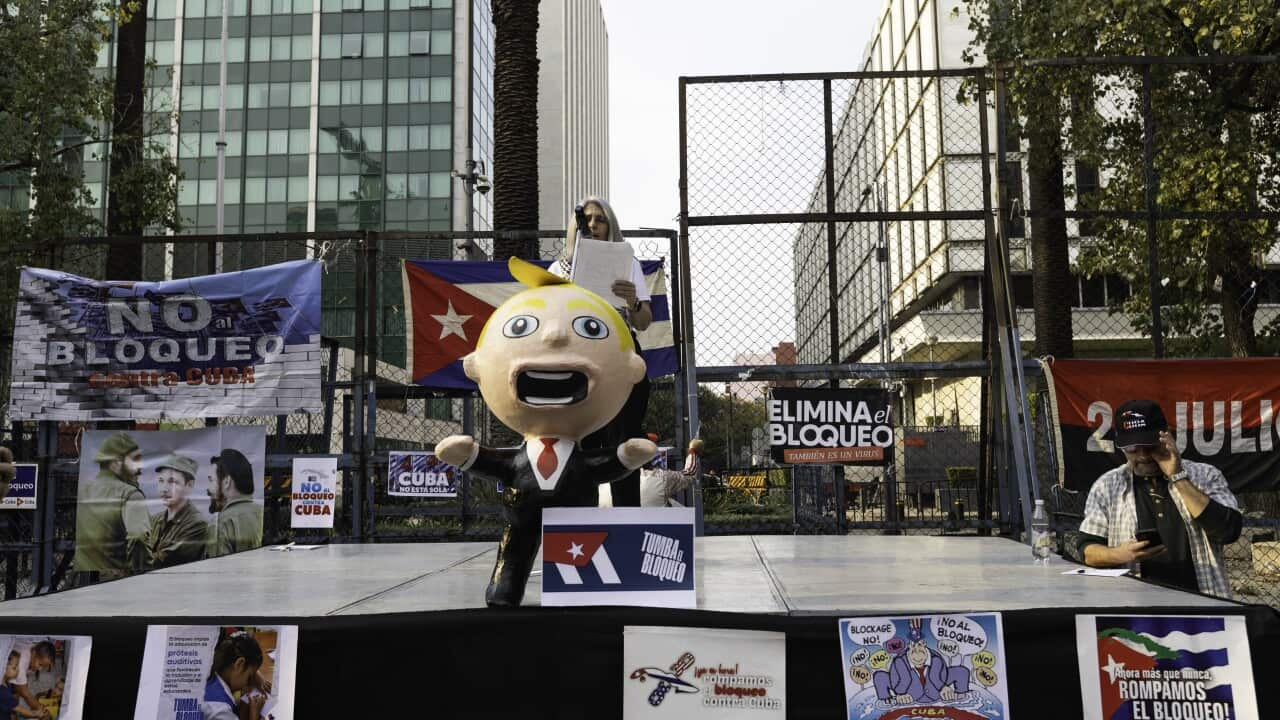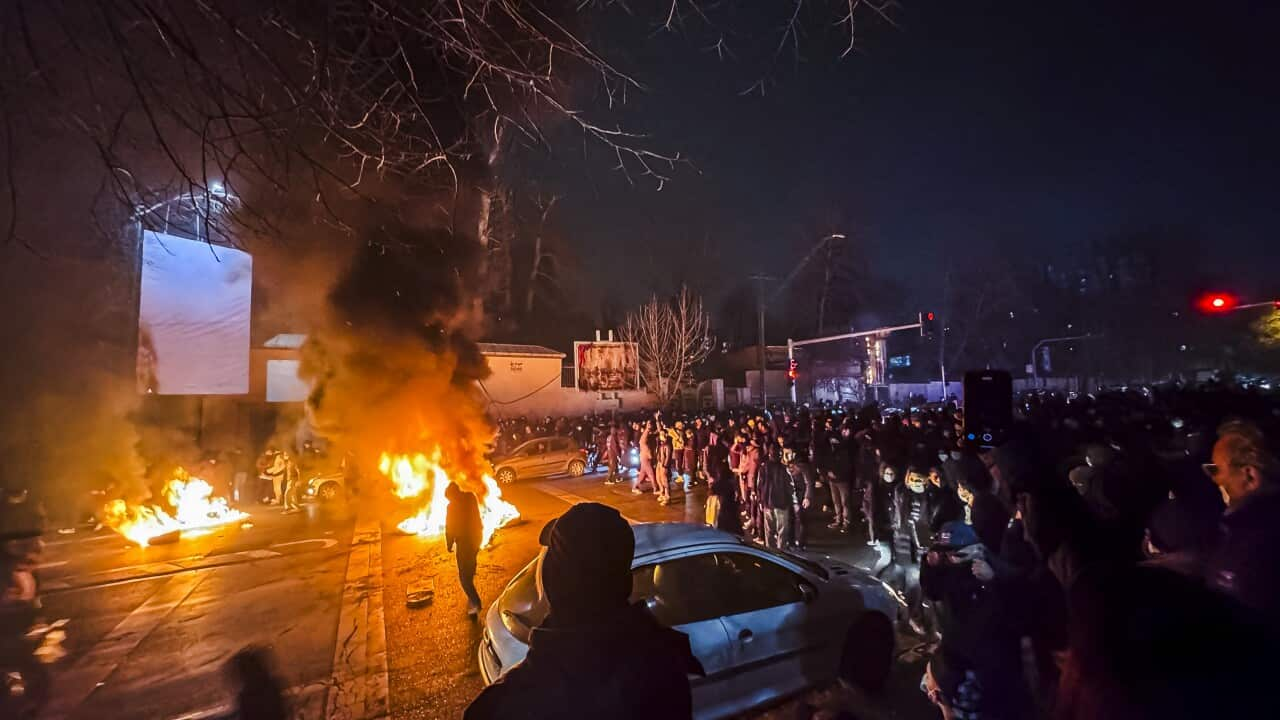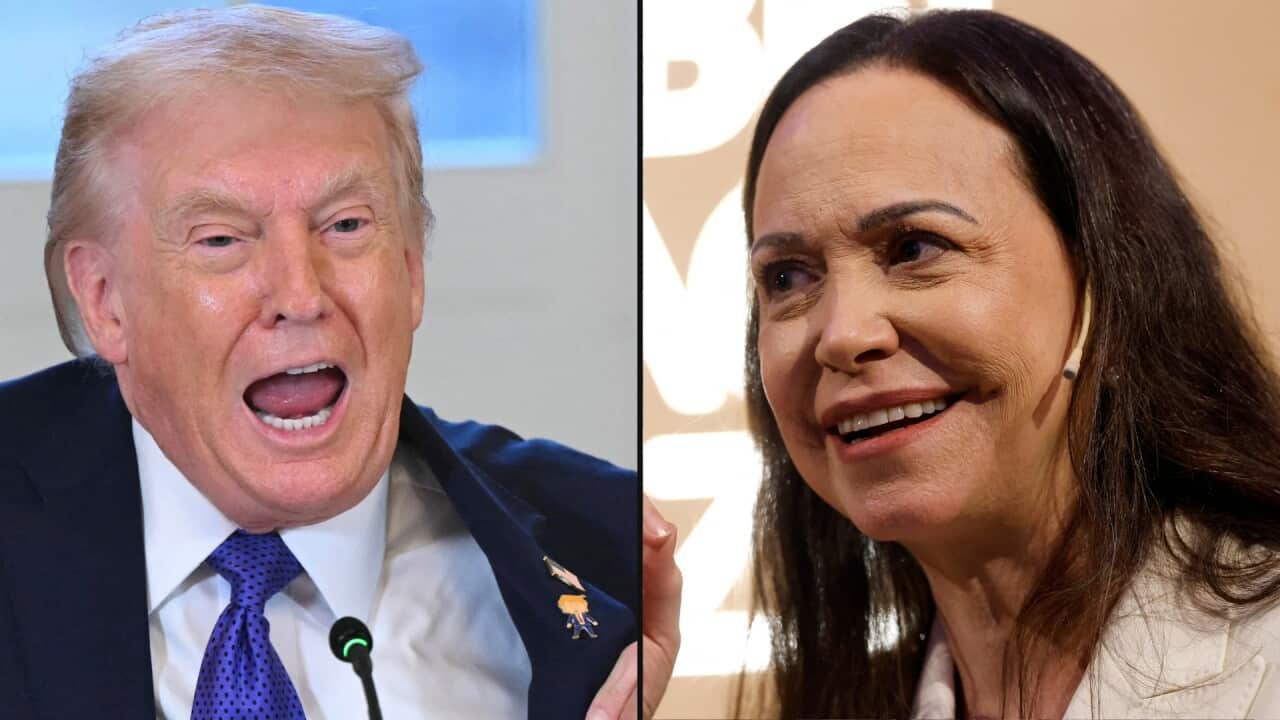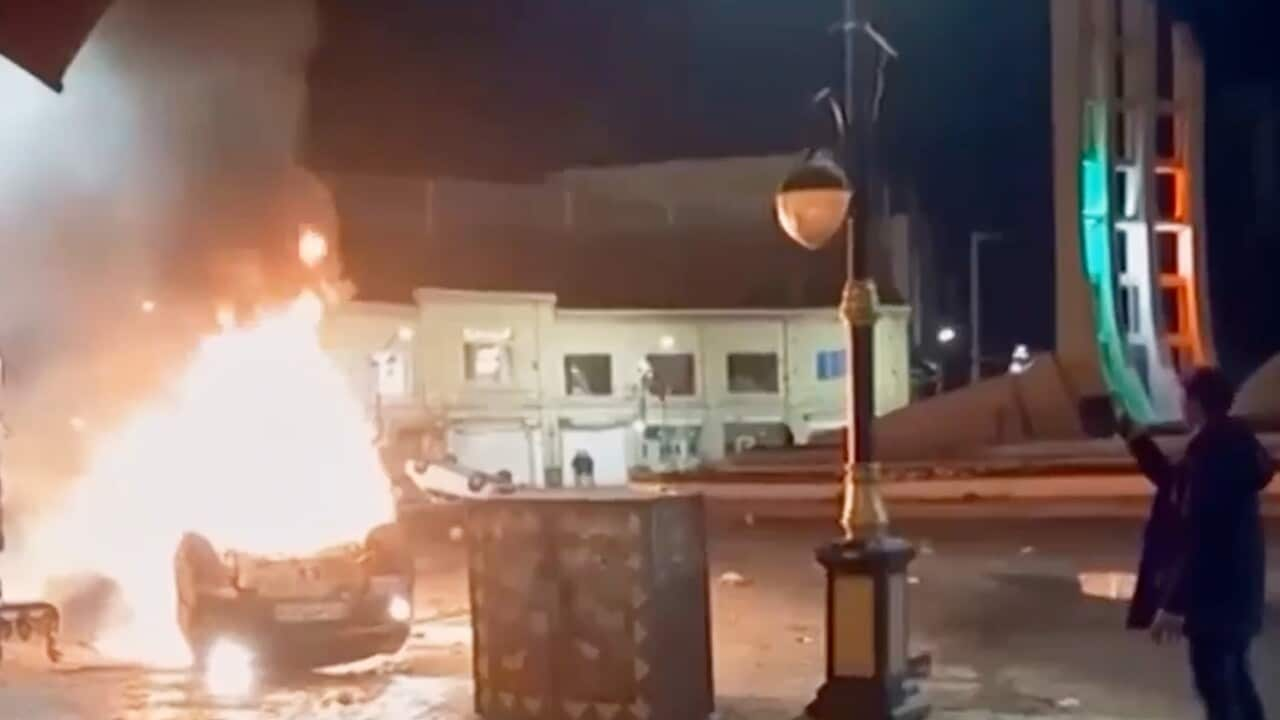Georgian police have arrested a prominent opposition leader after using water cannons and tear gas to scatter anti-government protesters who rallied outside parliament for the fourth straight night.
The protests were sparked by the government’s announcement last week that it was suspending talks on joining the European Union.
Critics saw that as confirmation of a Russian-influenced shift away from pro-Western policies, something the ruling party denies.
The Coalition for Change, the country’s largest opposition party, said in a post on X that Zurab Japaridze, one of its leaders, had been arrested by police early on Monday while leaving the demonstration.
Video showed Japaridze being placed in an unmarked vehicle by masked police.
Protesters and police have clased in Tbilisi. Source: AAP / Zurab Tsertsvadze/AP
The United States and the EU have voiced alarm at what they see as democratic backsliding by Georgia, a country of 3.7 million people that lies at the intersection of Europe and Asia and was once part of the Soviet Union.
Russia denies interfering in its neighbour, but former president Dmitry Medvedev warned on Sunday that Georgia was “moving rapidly along the Ukrainian path, into the dark abyss”, adding: “Usually this sort of thing ends very badly.”
On Sunday night, protesters gathered again in Tbilisi on the central Rustaveli Avenue, with some tossing fireworks at police, who responded with volleys of water cannons and tear gas.
“I’m here for a very simple reason, to defend my European future and the democracy of my country,” one of the demonstrators, Nikoloz Miruashvili, said.
Georgia’s Prime Minister Irakli Kobakhidze said the country would suspend talks on its bid to join the European Union until 2028. Source: AAP / Alexander Patrin/TASS/Sipa USA
Georgia’s interior ministry said 21 police officers had been injured during the overnight protest, with 113 hurt since the beginning of the unrest.
Prime Minister Irakli Kobakhidze accused the opposition of “co-ordinated violence” aimed at overthrowing the constitutional order.
Dozens of protesters have been injured since the latest demonstrations began, and the United States has condemned what it called the excessive use of police force.
President Salome Zourabichvili, a pro-EU figure who backs the protesters, said many of those arrested had suffered head and face injuries as a result of beatings.
“This is the revolt of an entire country,” she told French news group France Inter.
Hundreds of diplomats and civil servants have signed open letters protesting the decision to suspend talks with the EU and stop receiving funds from the bloc for four years.
At least four Georgian ambassadors have resigned.








